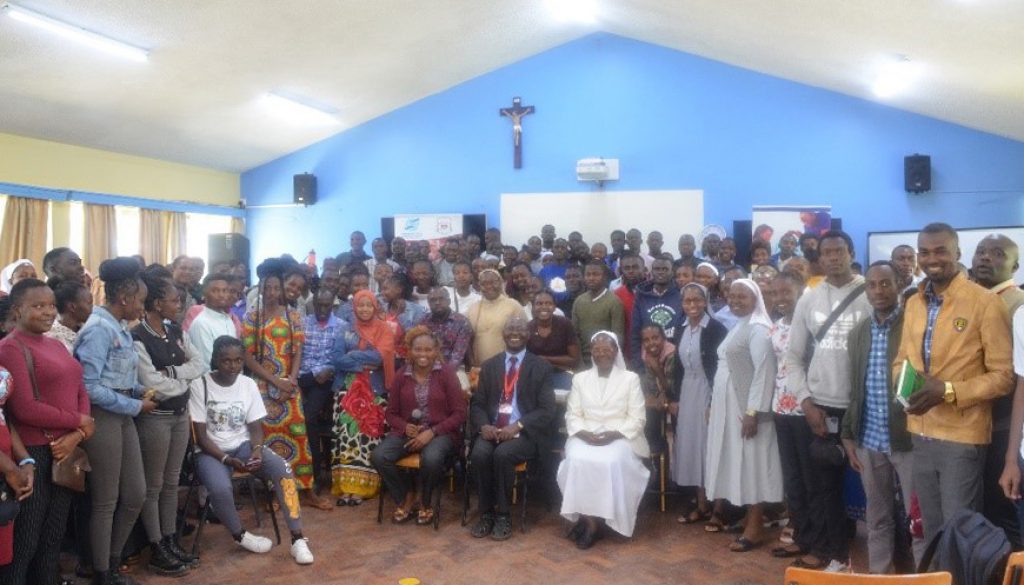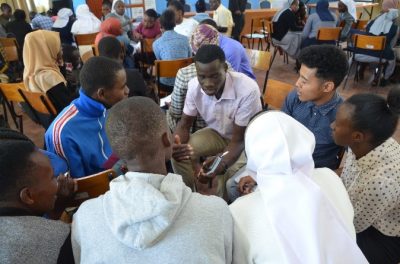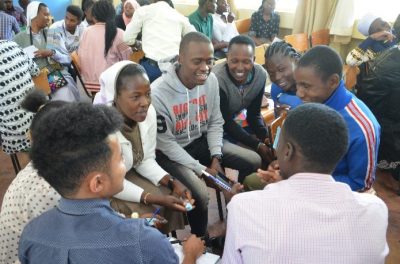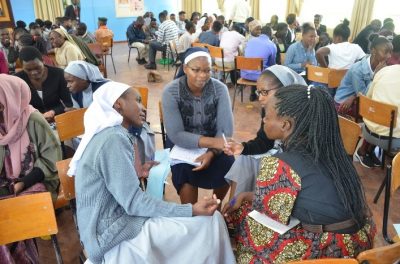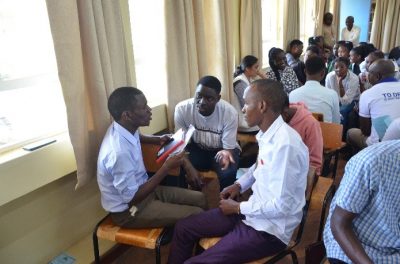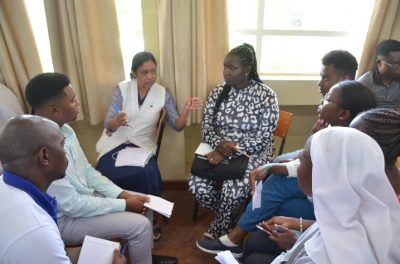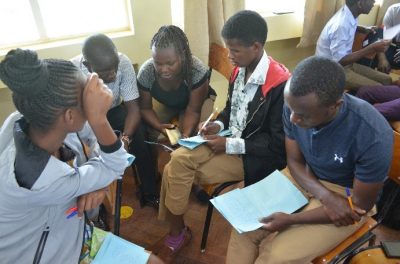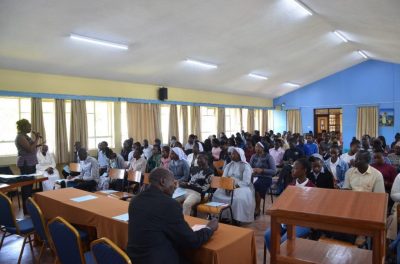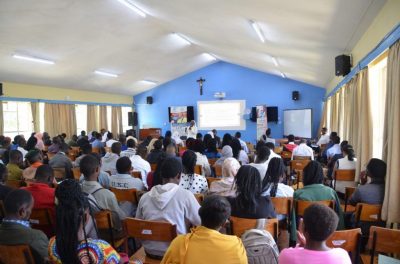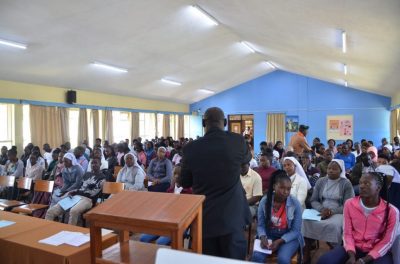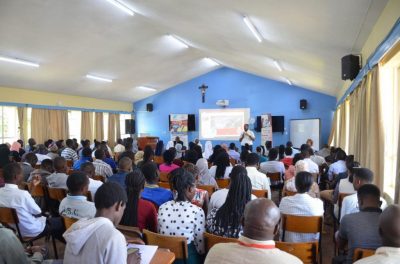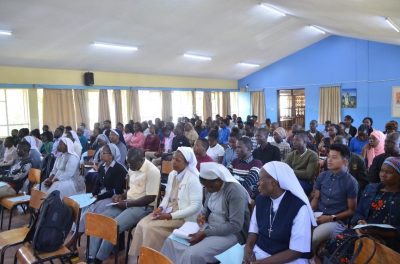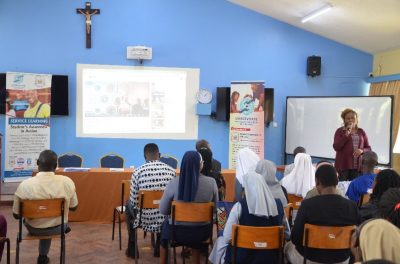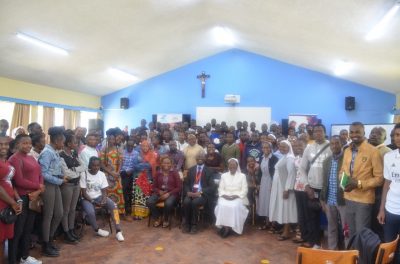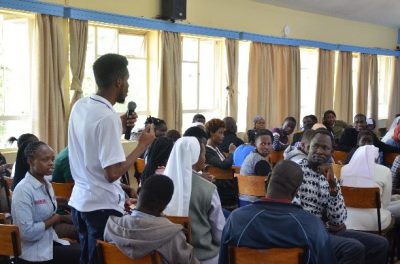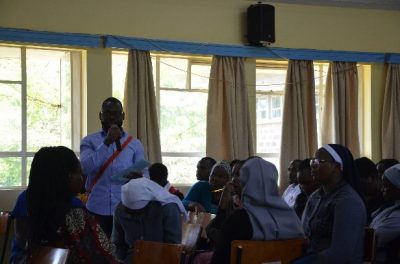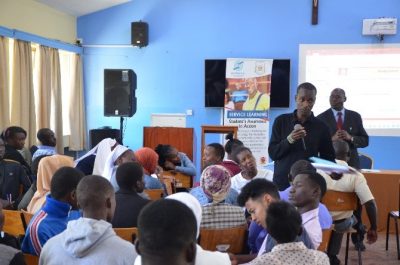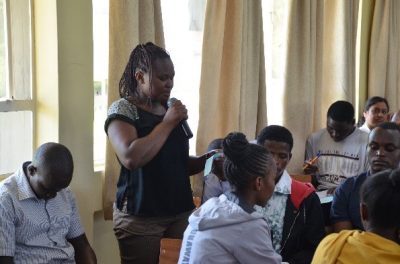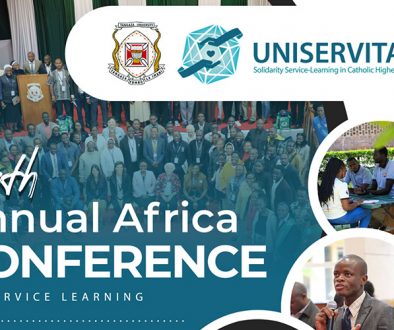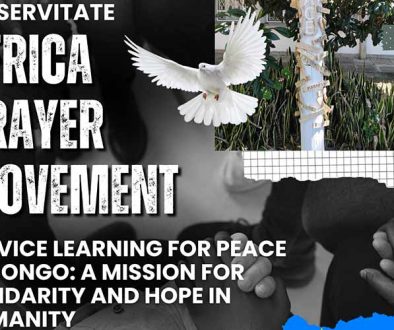The Service Learning Student’s Seminar (SLSS) – School of Education
Theme: Empowering Students as Change Agents in Connecting Knowledge and Theory to Community Practice.
The Service Learning Student’s Seminar (SLSS) took place at the school of education, under the theme “Empowering students as Change Agents in connecting knowledge and theory to Community Practice.” The seminar provided a valuable opportunity for young educators to explore the ways in which students can actively engage in community service and apply their academic knowledge to real-world problems.
The opening remarks from the Africa Regional Hub coordinator for Service Learning included the introduction of the concept of Service Learning and a discussion on the importance of service learning in education and the potential it has to empower students as change agents. The speaker emphasized on the importance of connecting academic knowledge to community practice and the positive impact it can have on both students and the community. According to her, Service learning is an approach of education that combines community service with classroom instruction, preparing students to become active citizens who are committed to making a positive impact in their communities.
Following the opening remarks, a panel of educators and facilitators shared their experiences and insights on service learning. The facilitators had two sessions:
- Service Learning – Connection between knowledge (Teaching minds) and making Meaningful Life (Touching Hearts and Transforming Lives).
- Practicing Service Learning through areas of specialization. Spiritual aspect of Service Learning for educators.
They discussed on the challenges and successes they have encountered in incorporating service learning into their classrooms and the impact it has had on their students. The facilitators also provided practical advice for educators looking to implement service learning in their own classrooms. They emphasized on the importance of proper planning, meaningful reflection and the need for authentic and relevant service learning opportunities for students.
The seminar also included group sessions whereby the students were grouped in their areas of specialization and guided on how to design and implement service learning projects. The workshop provided participants with the tools and resources needed to design and implement service learning projects that align with academic standards and connect to the community. The workshop covered key components of service-learning such as identifying the needs of the learners in the classroom setup, developing measurable goals, and selecting an appropriate service activity for both the learners and their communities at large. The workshop also discussed the importance of preparing students to work with the community, assessing the impact of the service, and providing meaningful reflection opportunities for the students.
One of the key takeaways from the seminar was the importance of involving students in the planning and implementation process of service learning projects. This allows students to take ownership of their service and have a more meaningful impact on their communities. Additionally, it was emphasized that service learning should not be seen as an additional burden on educators but as an opportunity to enrich the curriculum, enhance student learning and build stronger communities.
Overall, the seminar provided valuable information and insights on the benefits of service learning and the impact it can have on students and the community. It also provided practical tools and resources to help educators incorporate service learning into their classrooms. The seminar also highlighted the importance of building partnerships between schools and communities, which can lead to more sustainable and effective service learning projects.
Comments from the Evaluation of the seminar:
“Service learning is an effective way to empower our school of education students as change agents, and by connecting knowledge and theory to community practice, our students will be able to develop critical thinking, problem-solving and civic engagement skills while making a positive impact on their communities.” Mr. Wachira – Educator, SOE.
“The Seminar was extremely helpful because service learning was at first an abstract concept but now we are really informed on different ways to serve effectively and bring about a long-life impact in our societies.” Student – SOE.
“From the seminar, I have learnt how I can incorporate Service Learning during my vocation as a teacher. I have learnt how to use various topics as tool to solve various societal problems and bring transformation at every stage.” Student – SOE.
Group Discussions
Facilitators
- Dr. Judith Pete – Africa Regional Hub Coordinator, SL
- Sr. Dr. Margaret Aringo – Senior Lecturer, School of Education
- Dr. Aloys Ojore – Senior Lecturer, School of Arts & Social Sciences
- Mr. Simon Wachira – Lecturer & Teaching Practice Coordinator, School of Education
Group images
Students’ Presentations

